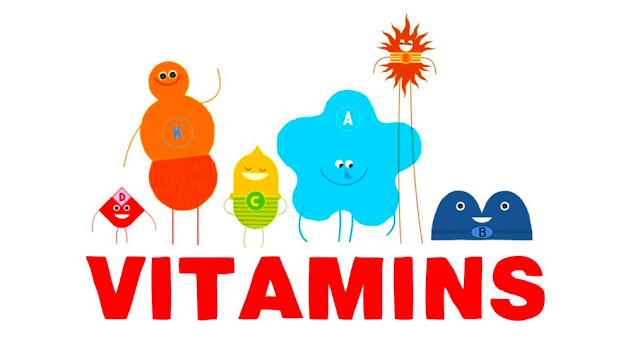C, E, D, B, A and K.
This alphabet is not arbitrary or out of order.
These are vitamins:
They are the building blocks that keep the body functioning, much as letters form language. We must consume trace amounts of chemical substances called vitamins to maintain our health. They aid in the development of muscle and bone, the utilisation of nutrients, the capture and use of energy, and the healing of wounds. They are the body’s builders, defenders, and maintenance personnel.
Consider the predicament of early day sailors, who had no access to vitamin-rich fresh foods, if you need more proof of the usefulness of vitamins. Scurvy struck them. But the easy cure for this illness was vitamin C, which is abundant in fruits and vegetables. Our bodies are unable to create vitamins on their own, so we must obtain them from outside sources. By contrast, bacteria, fungus, and plants can. So, how does the body bring vitamins in from outside? Depending on the shape these molecules acquire, yes.
There are two types of vitamins:
1. Water-soluble.
2. Lipid-soluble.
How the body absorbs, stores, and excretes excess vitamins depends on how different they are.
Vitamins C and B Complex, which are comprised of eight different types and each have a specific function, are examples of water-soluble vitamins. These are easily absorbed into the body because they are dissolved in the watery portions of fruits, vegetables, and cereals. Once ingested, these meals are digested, and the bloodstream immediately absorbs the vitamins they contain. Water-soluble vitamins C and B have an easier time being transported because blood plasma is made of water, but they can still move around freely inside the body.
This journey into the blood is a little riskier for lipid-soluble vitamins, which are dissolved in fat and present in foods like dairy, butter, and oils. These vitamins pass through the stomach and intestine, where bile, an acidic fluid produced by the liver, breaks down fats and makes them more soluble so they may be absorbed through the intestinal wall. Proteins that bind to fat-soluble vitamins and act as messengers to transport them into the blood and throughout the body are needed since fat-soluble vitamins cannot utilise the blood’s watery nature to move them around.
Thus, the difference between vitamins that are fat- or water-soluble affects how they enter the bloodstream as well as how they are retained by or excreted from the body. Because the system makes it so easy for water-soluble vitamins to circulate in the bloodstream, the majority of them can be eliminated by the kidneys just as quickly. Because of this, the majority of water-soluble vitamins must be replaced daily through our diets. However, fat-soluble vitamins are more durable because the liver and fat cells can store them. Since the body usually contains plenty of this kind of vitamin, we shouldn’t take too much of it. The body keeps the vitamins in these places and distributes them as needed, using them as a storehouse.
The vitamins are now free to carry out the purpose for which they were originally brought to this location after we worked out the difficulties of transportation and storage. Some vitamins—like many of the B Complex vitamins—contain coenzymes, which aid in the release of food’s energy through enzymes. The body is subsequently assisted in using that energy by other B vitamins. You can generate collagen, a type of tissue that helps to form bones and teeth and mend wounds, and you can also fight infections thanks to vitamin C. White blood cells play a crucial role in the body’s defence. Vitamin A also helps to shape bones and enhances eyesight by maintaining the balance of eye cells. In order to build bones, vitamin D collects calcium and phosphorus, and vitamin E functions as an antioxidant, removing substances from the body that may harm cells. We finally give vitamin K points for its contribution to the production of the proteins necessary for blood clotting.
Humans are vulnerable to shortages without this vitamin variety, which can result in a range of issues like weariness, nerve damage, heart conditions, or illnesses like rickets and scurvy. On the other hand, consuming excessive amounts of any vitamin can lead to toxicity in the body, dispelling the assumption that piling on supplements will be beneficial. In actuality, it all comes down to striking the perfect balance and receiving enough vitamins.
Related Searches:
how do vitamins work in pokemon, examples of vitamins, what vitamins do i need daily, vitamins and their functions, what does vitamin a help prevent?, sources of vitamins, vitamins and minerals function.
List of Tags:
vitamins, health, Vitamin C, Vitamin A, Vitamin D, Vitamin K, Vitamin E, medicine, vitamins, vitamins and minerals, vitamins for eyes, vitamins for hair, vitamins for hair loss, vitamins for pregnancy, vitamins for skin, vitamins in apple, vitamins in banana, vitamins in carrots.


